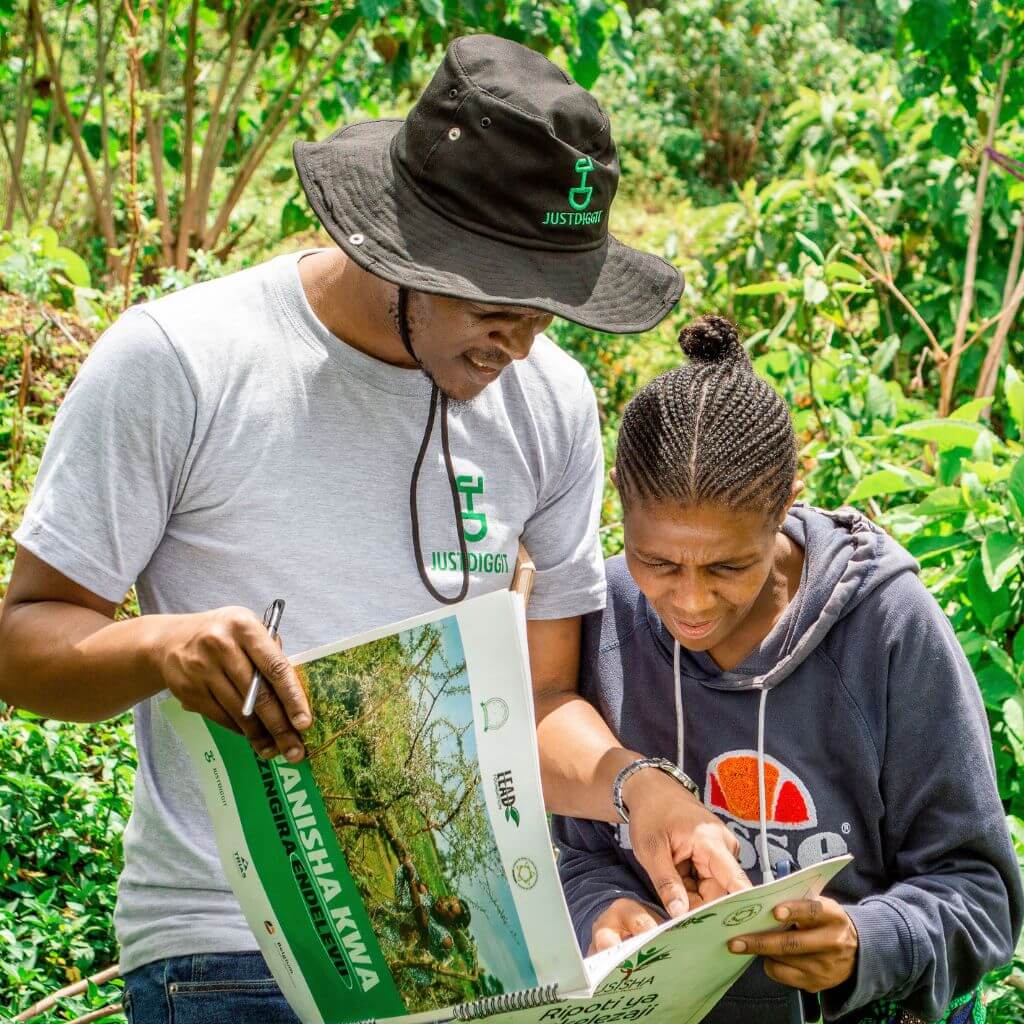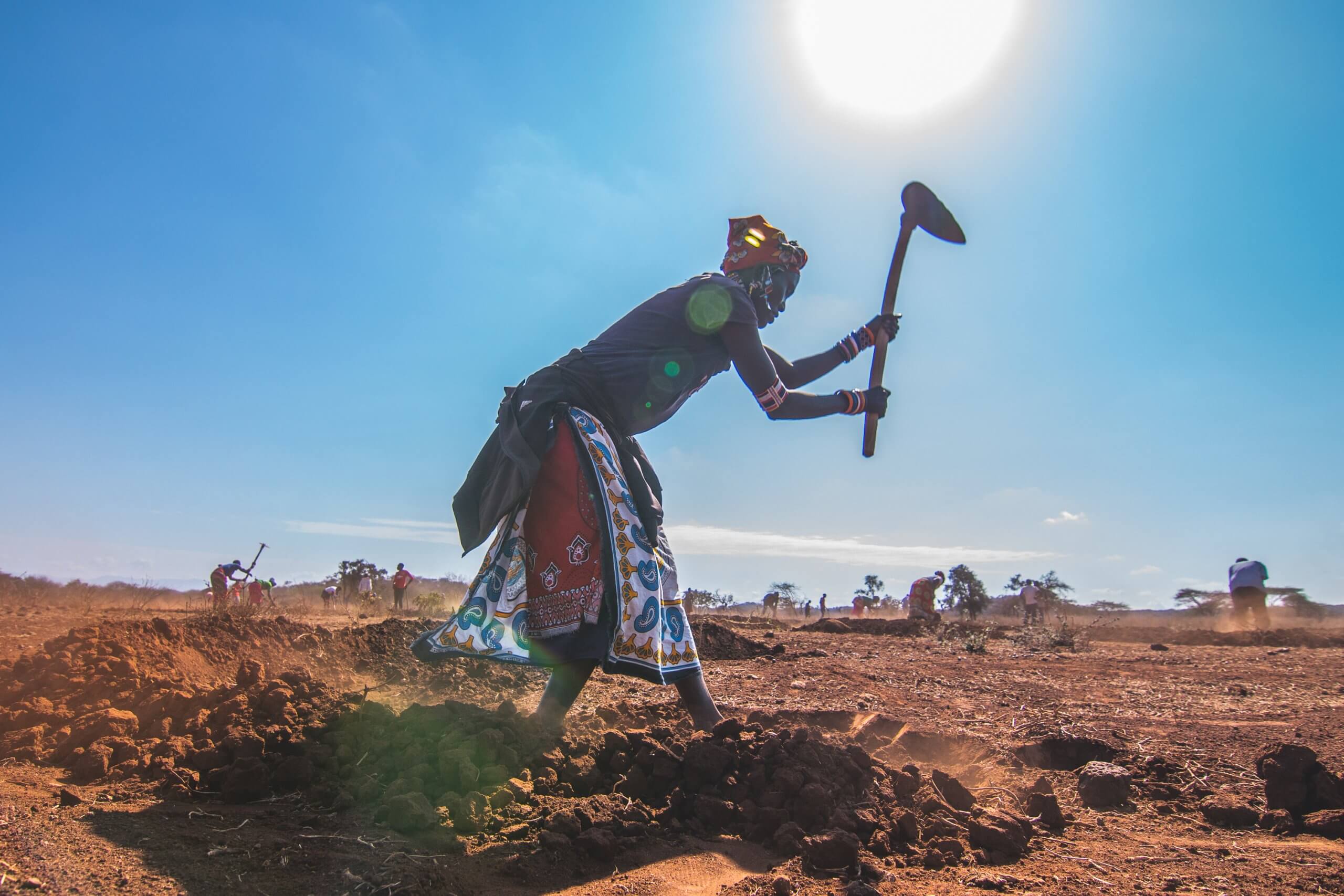
Learn about why we do, what we do
Justdiggit
Inspiring millions to take action to regreen degraded landscapes in Africa
We are in a global climate and biodiversity crisis: our planet is warming up while the human population continues to grow.
In Sub-Saharan Africa, climate change, land degradation and over-exploitation are causing temperatures to rise, land to dry up and fertile soils to erode.
If we bring back nature with nature-based solutions on a large scale, we can positively impact climate change.
Over the last decade, we have proven that it is possible to regreen degraded landscapes in sub-Saharan Africa quickly and efficiently. By inspiring more farmers with the positive impact on the land and the people, we are now moving to the next stage: disruptive regreening. Now is the time to dig in and scale up. Let’s change climate change together!
To reach our goal and regreen degraded African landscapes, we focus on our core activities:
By combining accessible, nature-based landscape restoration techniques with the power of media and communication, data, and mobile technology, we can spread our regreening message and scale up our practices.
How does landscape restoration help?
By restoring degraded landscapes and bringing back nature, the vegetation keeps the soil healthy and fertile, which allows plants and trees to keep on growing. This helps restore the water cycle which can further prevent erosion.
How does Justdiggit regreen African landscapes?
We regreen degraded African landscapes by applying nature-based solutions. We work with various landscape restoration techniques, like water bunds and treecovery, in our projects to achieve this.
Does Justdiggit need donations?
Yes. We are a non-profit organisation that needs donations to fund our projects. You can view our Annual reports for an overview per year showing our impact, achievements, financial performance and future outlook.
Does Justdiggit have certification?
We do! Since 2010, we are officially recognised as a Public Benefit Organisation (ANBI), in 2023 we joined 1% for the Planet and in 2024 we received the CBF recognition.
